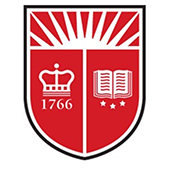{{phone.Value}}
successful admissions
of students enter the university of their choice
students consult Education Index when applying for universites
successful admissions
of students enter the university of their choice
students consult Education Index when applying for universites
The flagship campus of New Jersey's state university, based in New Brunswick, is actually split into five mini-campuses known as Douglass, Cook, College Avenue, Busch and Livingston. Each campus has a unique setting and identity, from the hip student feel of the College Avenue campus to the farmland and science buildings at Cook Campus. Each mini-campus has its own student center and dining options.
While several student centers, libraries, commercial venues, and dining halls are found on the various campuses, each campus has a unique environment created by the academic departments and facilities it hosts.
Campus facilities include:
Transportation: The campus bus and shuttle system is a service provided as a means to travel between campuses.
Computing centers: Student accessible computers are mainly concentrated within computer labs. Rutgers has many computing centers to serve the university community.
Meals: The dining services claim to be the third largest student dining operation in the USA, serving 4.5 million meals annually. There are four student dining facilities which also provide catering for over 5000 University events yearly.
Health centers: Rutgers has 3 health centers/pharmacies which provide primary care to Rutgers students. The RUHS nurse line is available at no charge to Rutgers University students when the Health Centers are closed.
Museums: The Jane Voorhees Zimmerli Art Museum is located in Voorhees Mall of the College Avenue campus. It was founded in 1966 and later named after Jane Voorhees Zimmerli who was the mother of philanthropist Alan Voorhees. The Geology Museum is also located on college Avenue Campus. The Mason Gross Galleries are located downtown in the university's Civic Square building.
There are more than 400 student clubs and organizations across the mini-campuses, including more than 80 fraternities and sororities.
The fun never ends at Rutgers. Clubs you probably could never imagine existing are here, there are parties, there are plays you can catch, a movie theatre on campus, there are nature trails to walk, gyms to work out in, restaurants, shopping, games to watch, and events that are programmed by various organizations on campus that are either free or very inexpensive to attend. For example, fall harvest festivals, concerts, movie screenings, art exhibitions, and so many more. You will never be bored at Rutgers if you keep your eyes peeled for fun events that are happening on campus.
Freshmen do not have to live on campus, but those who choose to do so have options on each campus, too.
Residence halls provide many facilities for students. With over 15,000 resident students, 5 different campuses each with its own identity, 58 residence halls, 4 dining halls and 30-plus food courts/cafés, students can find everything they need right on campus. Despite some over-crowding, students wishing to live on-campus are usually accommodated, with a lottery system for non-incoming freshmen determining the order in which students choose their preferred housing.
Single, double, and triple-occupancy rooms, apartments housing four students each, and suites housing six students each are available. Rooms and apartments are single-sex, with the exception of married graduate student housing, which also permit children of students. Most floors and buildings are co-ed. Rooms usually contain beds, desks, chairs, dressers, and a closet for each student. Cable/internet access are also provided, but due to the widespread use of mobile phones, traditional land-line phone service is no longer provided in the halls. Many residence halls include laundries, main lounges with TVs, foosball and ping-pong, floor lounges with sofas, study tables, and kitchenettes, study lounges, and vending machines. Every floor or house has a resident advisor, an upper class student mentor who has received special training and is responsible for handling a number of tasks, such as planning programs and events, monitoring for safety, and documenting policy and procedure violations.
98% of students are employed, freelancing, or continuing their education 3 months after graduation in 2016. The majority of MBA students are employed in Pharmaceutical/Biotech/Healthcare – 32%.

Spanning New Brunswick, Piscataway, and adjacent towns in central New Jersey, Rutgers University–New Brunswick sits at the center of America’s northeast corridor, which runs from Boston to Washington, D.C.
With excellent air, rail, bus, and highway connections to all points, our prime location attracts talented scholars and students seeking access to world-class everything.